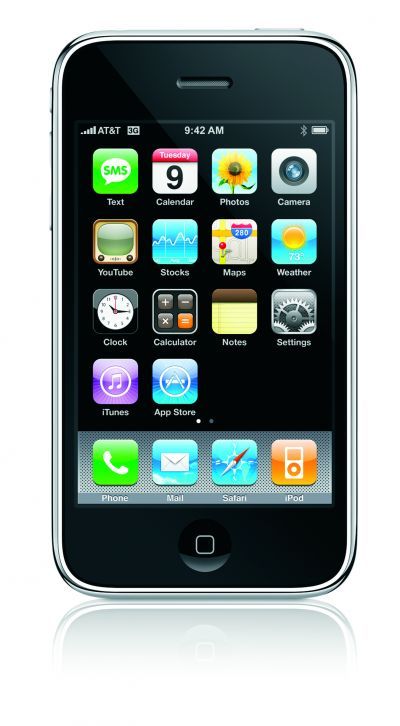iPhone fears as 'Rick Astley' worm spreads in Australia

An Australian student sparked fears of a new era of computer viruses on Tuesday after creating a worm which infects Apple's iconic iPhone with pictures of 1980s pop star Rick Astley.
Ashley Towns, 21, who lives with his family near Sydney, said he was trying to raise security awareness with his cheeky but harmless "Ikee" worm, which spreads from phone to phone along wireless networks.
"This virus pretty much exploits people's laziness to change their password," he said, according to public broadcaster ABC.
"Somebody with more malicious intent could have done anything - read your SMSs, go through your emails, view your contacts, photos - anything," he added.
The virus swaps the smartphone's wallpaper with an image of Astley and the words "Ikee is never gonna give you up" - a reference to the British star Astley's 1987 chart-topper: "Never Gonna Give You Up".
It affects only phones that have been modified, or jail-broken, to install applications not approved by manufacturer Apple, and can easily be deleted.
But experts warned Towns, among the first in the world to hack into the popular iPhone, may have caught the attention of cyber-criminals wanting to steal personal information such as bank details.
"We would view this as a very serious development," Peter Coroneos, chief executive of Australia's Internet Industry Association, told AFP.
"This should raise awareness of viruses and that people should not regard cellphones as being any more secure than computers."
Towns, a technical college student now reportedly the target for work at software firms, said he had proved it was not hard to hack into an iPhone and was not aware if he had broken any laws.
The worm taps into the popular "Rickrolling" Internet phenomenon, where clicks on booby-trapped web links take unwitting users to video footage of Astley performing "Never Gonna Give You Up".
"The virus itself is not malicious and is not out to hurt people. It's just poking fun and hopefully waking people up a little," Towns said.
"When people jail-break their phone, it allows them to install a service on their phone called SSH.
"Generally you should always change your password after setting up on the iPhone as all iPhones use the same password."
Kevin Haley, director of product management at anti-virus firm Symantec, said it was only a matter of time before "bad guys" tried to imitate Towns by hacking the iPhone.
"When the cyber-criminals see there's anything worth hacking, they try to start finding out ways of doing that," he said.
"It's a little like waving a red flag and saying, hey, there are possibilities here."
Apple warned customers against jail-breaking their iPhones and gave reassurances that only devices modified with "unauthorised software" were vulnerable.
"As we've said before, the vast majority of customers do not jail-break their iPhones, and for good reason," the company said in a statement given to to AFP.
"These hacks not only violate the warranty, they will also cause the iPhone to become unstable and not work reliably."
th/ajc/kma
Join our commenting forum
Join thought-provoking conversations, follow other Independent readers and see their replies
Comments